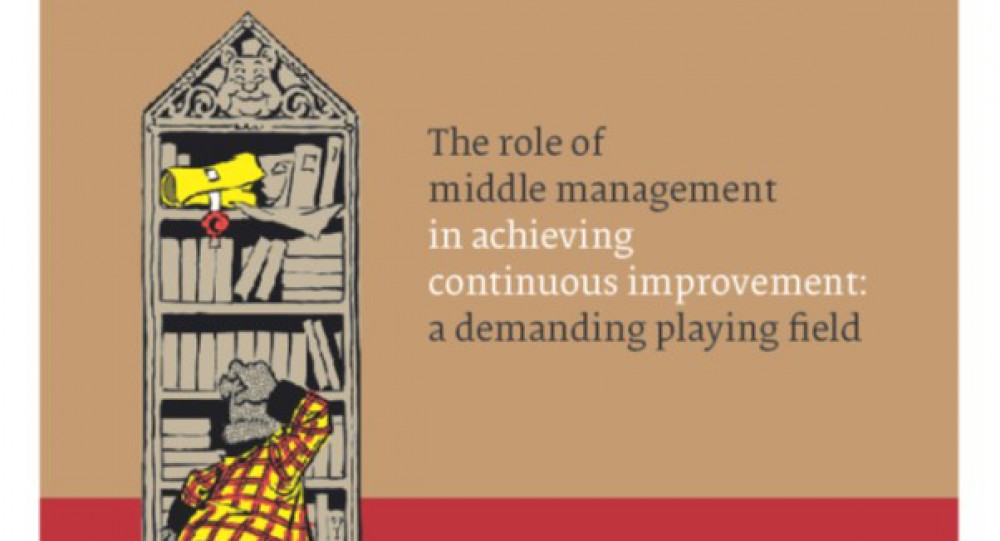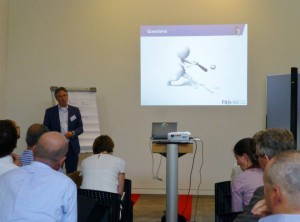Training Courses
We not only use our knowledge and experience in the field of Customer Excellence to make organisations more independent and more professional, we also feel that it is our responsibility to share this knowledge. We do this through our own MLC Academy.
In addition to offering standard training modules, the MLC Academy offers customised professionalisation training courses to groups in the field of Customer Excellence. These training courses can be carried out at various levels, both for entry-level employees and more experienced employees and managers.
The courses include such issues as: the Voice of the customer, a Customer driven (process) organisation, Results-oriented guidance, the design and modelling of processes and Continuous improvement.
If you have specific requirements, we will be able to provide you with a suitable offer.
Read more about our training programs:

Businessgames and Gamification
Traditional courses focus on knowledge transfer, which results in minimal behavioural change. We believe in experiencing something yourself and in influencing knowledge, attitudes and behaviours by applying game principles and game mechanics. Using Gamification, work becomes a temporary game. The target audience can be moved and get active through the use of an exciting game. In a very short time we can see a change of behaviour leading to a rapid improvement in the organisations’ performance. For Gamification, we work together with our partner, @Hand.

In our offer, we also have a business game about customer-oriented businesses. In this game simulation, the objective is to meet the business objectives and the customers’ needs simultaneously. Important principles such as customer satisfaction, customer value, customer loyalty, customer retention and creating customer ambassadors are the central theme of the game.
On-the-job coaching
We can assume that it is essential for organisations to bring the new knowledge that employees have gained into practice quickly and in the right way. It may be that additional support from an expert is appropriate. MLC helps organisations achieve goals through targeted on-the-job-coaching.
Knowledge meetings
In order to share our knowledge and to continuously challenge ourselves to further develop this knowledge we organise Round Table meetings and Master Classes.
Since 2010, MLC has been responsible for the master class in Business Process Improvement (BPI) at the master’s degree program for Personal Leadership in Innovation and Change (PLIC) at Zuyd Hogeschool (Zuyd University of Applied Sciences). In the BPI master class, managers and professionals learn to identify, design, realise and implement BPI in the organisation in a structured way. The master class also provides an additional benefit of creating awareness of the power of BPI in strategic change processes in which, for example, cost savings, process improvements and organisation innovations are the central theme. The master class uses a practical approach that is reinforced with theoretical concepts such as Lean Six Sigma, Continuous improvement, Results-oriented guidance and Voice of the customer.

Doctoral research
As a knowledge provider, we think it is important to continue to innovate. We therefore facilitate thesis research. Currently, our colleague, Freek Hermkens, is carrying out, as an external PhD candidate, research at the Technische Universiteit Eindhoven (TUE). Prof. Dr. Sjoerd Romme has been assigned as promoter with Dr. Sharon Dolmans and Prof. Dr. Ir. Arnout Brombacher as co-promoters.

The central theme of the research is: ‘How, and to what extent, does middle management contribute to the achievement of continuous improvement (within financial service providers)?’ You can find more information about this research at www.middle-management.eu.
On 12 and 13 September 2014, Freek presented his first research results during the 9th Colloquium on Organizational Change & Development (the Future of Change Management) in Essen, Germany.
Would you like to know more about what the MLC Academy can do for your organisation? Please feel free to contact Freek Hermkens .







